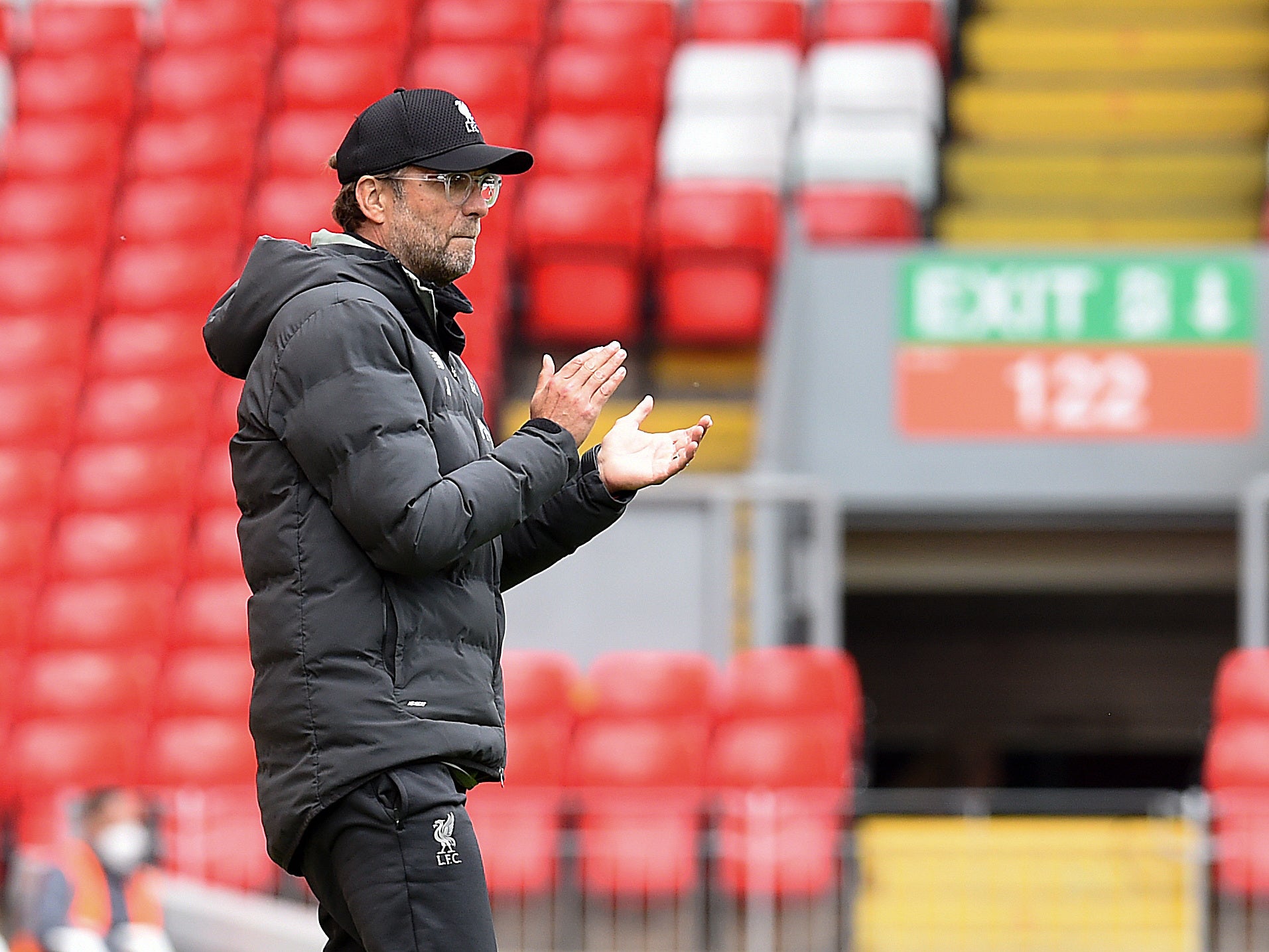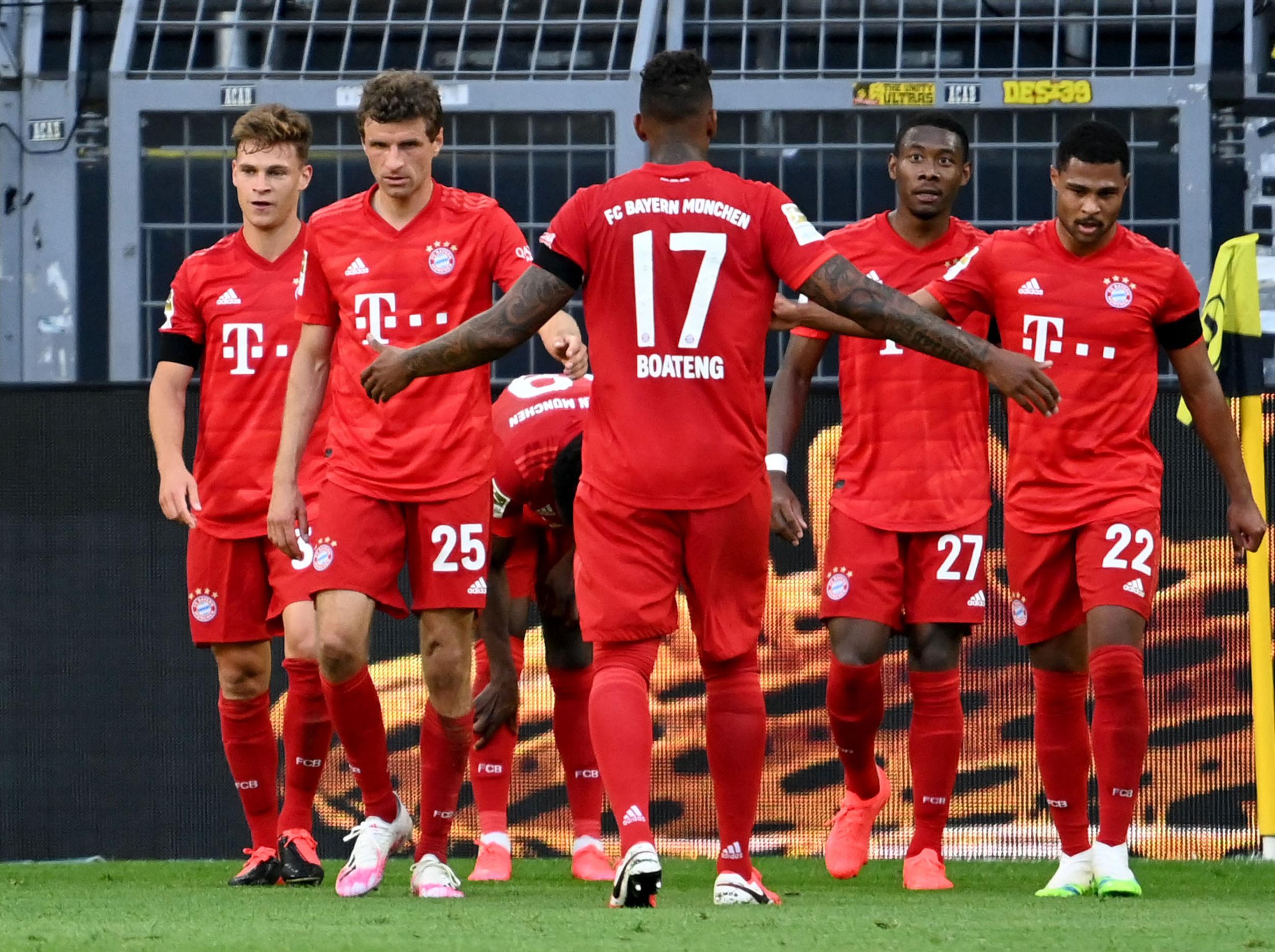The Premier League is back, but will games feel ‘real’ without their fundamental ingredient?
Professional football only exists because fans can go to games, but the sport is adaptable enough to adjust to a new era even if reality tells us the product is not quite what it used to be

Your support helps us to tell the story
From reproductive rights to climate change to Big Tech, The Independent is on the ground when the story is developing. Whether it's investigating the financials of Elon Musk's pro-Trump PAC or producing our latest documentary, 'The A Word', which shines a light on the American women fighting for reproductive rights, we know how important it is to parse out the facts from the messaging.
At such a critical moment in US history, we need reporters on the ground. Your donation allows us to keep sending journalists to speak to both sides of the story.
The Independent is trusted by Americans across the entire political spectrum. And unlike many other quality news outlets, we choose not to lock Americans out of our reporting and analysis with paywalls. We believe quality journalism should be available to everyone, paid for by those who can afford it.
Your support makes all the difference.While players like Hugo Lloris admit going back to football feels “very strange”, the broadcasters are hoping to change that for the many fans watching.
Sky Sports have realised the value of the crowd noise concept, and have been working very hard to get it right - coming up with various new ideas. It will, in the words of one source, “be like real”.
This, appropriately enough, is one of the biggest questions surrounding the whole of Project Restart. Will it be seen as real? Will it feel like an extended pre-season? The eventual results will of course be recorded, and go down in history, but will it be remembered as completely authentic? Will there be a sense that this is just some kind of a simulacrum until we can all get back to normal?
It won’t be the complete experience, since a fundamental part of the game will be missing. Football - in a very real sense - only exists because of the supporters who go to games. That’s what the professional game grew out of, that’s who it still primarily serves.
And those supporters do much more than observe, or make the occasion. They actively influence what happens, enrich it and make it all the more fulfilling. They often make players more intensely fulfil what they're doing.
Bundesliga players like Joshua Kimmich conspicuously spoke of how the current matches compare to “normal games”, mentally setting them apart, and likening them to a youth fixture. The wonder remains whether they lack the full intensity, even subconsciously, thereby taking away from the overall result; leaving that lingering question.
“The crowd has an importance,” Lloris says. “The crowd takes part in the game. It helps you make the extra effort. It’s like an extra boost in some moments. It’s a new experience for all of us, and something we need to adapt to.”
Something that sums up how surreal it is is that Liverpool could end up both the earliest and latest champions in history. Jurgen Klopp’s side may well win the league with eight games to spare, but in late June or early July.
For all the jokes about a supposedly asterisked title, though, it will always stand to Liverpool’s legacy that they effectively had it won by Christmas. They were certain to be champions before the crisis. That’s what will be remembered about this team. This title is very much real.
As for the rest of the league, that’s harder to say. It’s also much harder to even try and say what will happen.

There’s never been any precedent for this. There’s never been a break in competitive modern era football like this. We have no baseline for what will happen next, no guide. It's all uncharted territory, even if it is in the home stadiums.
That could have “real” consequences, not least for any teams or managers who don’t reach their objectives, like those who get relegated or fail to qualify for Europe. They can always point to this being a completely freak season, disrupting what they would have done. That could well save a few jobs.
On the other side, you could say this is the great leveller, removing all caveats. Managers have never had so much time to prepare, to think. The vast majority of players are fit. Tottenham Hotspur have Harry Kane and Son Heung-min back, Paul Pogba will return for Manchester United.
“This period has given the time to all teams to recover the players who were injured,” Lloris says. “It gives time to reach a good level of fitness and to be ready for competition. Even four weeks without training will not help but it’s not been the case here.”
It’s for that reason that one figure at the top end of the game, having run through a lot of analytics, reckons it will be the highly technical teams that fare best. If they have managers with creative tactical minds, all the better. It is why he thinks Manchester City “could be class”. A coach like Mikel Arteta, meanwhile, has had plenty of time to think about what his best team is.
Dimitar Berbatov similarly told The Independent this could be a time when certain players “come out of their shells”, released from the glare of the crowds. John Giles used to call them “sunshine boys” - “the lads who were good in training”.
For all that, when you break it right down, competitive football is competitive football. That is true no matter the environment, or surroundings. An instinct takes over. A base competitiveness takes over, that fittingly goes back to how everyone started playing football. This is why you often hear players honestly say “you forget the crowd are there”.
That could best be seen with the biggest game of the post-Covid era so far: Borussia Dortmund versus Bayern Munich. It was as intense a match as you’d expect, and maybe much better than you’d expect.
It illustrates how players and teams - and pretty much everyone - ultimately adjusts to the conditions they’re in. Those conditions never stay the same in “normal” times.

Clubs change managers and sign and sell players in January. Form, tactics and performances change. Teams adapt to that.
That’s likely to be the case here. Players, and people, will adapt.
It will likely be jarring at first. The games will take getting used to. That’s what the broadcasters are conscious of with the crowd noises.
Then, the football cycle will simply take over. Games will happen, so events will happen, so stories will happen - consuming us all.
It’s the main reality we know, even if it’s not quite as we know it.
Join our commenting forum
Join thought-provoking conversations, follow other Independent readers and see their replies
Comments